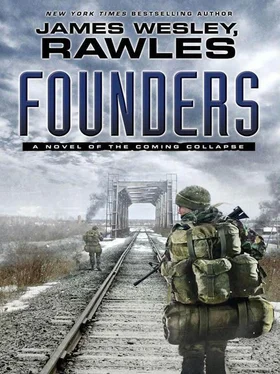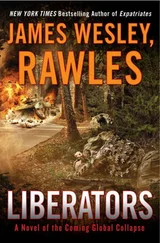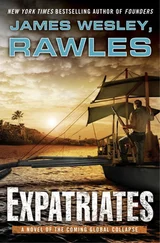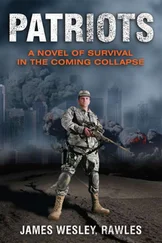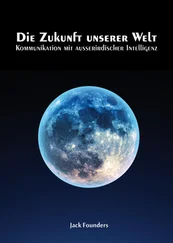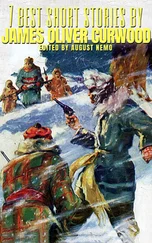James Rawles - Founders
Здесь есть возможность читать онлайн «James Rawles - Founders» весь текст электронной книги совершенно бесплатно (целиком полную версию без сокращений). В некоторых случаях можно слушать аудио, скачать через торрент в формате fb2 и присутствует краткое содержание. Город: New York, Год выпуска: 2012, ISBN: 2012, Издательство: Emily Bestler Books, Жанр: sf_postapocalyptic, на английском языке. Описание произведения, (предисловие) а так же отзывы посетителей доступны на портале библиотеки ЛибКат.
- Название:Founders
- Автор:
- Издательство:Emily Bestler Books
- Жанр:
- Год:2012
- Город:New York
- ISBN:978-1-4391-7282-7
- Рейтинг книги:5 / 5. Голосов: 1
-
Избранное:Добавить в избранное
- Отзывы:
-
Ваша оценка:
- 100
- 1
- 2
- 3
- 4
- 5
Founders: краткое содержание, описание и аннотация
Предлагаем к чтению аннотацию, описание, краткое содержание или предисловие (зависит от того, что написал сам автор книги «Founders»). Если вы не нашли необходимую информацию о книге — напишите в комментариях, мы постараемся отыскать её.
Founders — читать онлайн бесплатно полную книгу (весь текст) целиком
Ниже представлен текст книги, разбитый по страницам. Система сохранения места последней прочитанной страницы, позволяет с удобством читать онлайн бесплатно книгу «Founders», без необходимости каждый раз заново искать на чём Вы остановились. Поставьте закладку, и сможете в любой момент перейти на страницу, на которой закончили чтение.
Интервал:
Закладка:
Despite the ProvGov’s efforts, the guerrillas rapidly gained in numbers. As the war went on, resistance gradually increased beyond the UN’s ability to match it. Every new detainment camp spawned the formation of new resistance cells. Every reprisal or atrocity by the UN or federal forces pushed more of the populace and even federal unit commanders into active support for the guerrillas. Increasing numbers of commanders decided to “do the right thing” and abide by the Constitution. The decision to support The Document rather than the Provisional Government’s power elite at Fort Knox was becoming widespread. Units as large as brigade size were parlaying with the guerrillas and turning over their equipment. In many instances the majority of their troops joined the Resistance.
County after county, and eventually state after state, was controlled by the Resistance. The remaining loyal federal and UN units gradually retreated into Kentucky, Tennessee, and southern Illinois. Most held out there until the early summer of the war’s fourth year. Militias and their allied “realigned” federal units relentlessly closed in on the remaining federal territory from all directions.
Fort Knox, Kentucky
Early July, the Fourth Year
The opportunity for the Constitutionalist underground within the UNPROFOR to round up the foreign troops at Fort Knox came on July 3, when there was a German art film scheduled to be shown at the old Waybur Theater. The movie had been produced two years before the Crunch. It was titled Die jungen gefangenen Karrierefrauen (“The Captive Young Career Women”). The movie could at best be called soft pornography. The film was in German, with Dutch subtitles. A large number of UN officers and NCOs were expected to be there. Since it had been a very popular film in Germany, the first showing at the post theater was restricted to officers and NCOs only.
“It should be perfect,” Andy told General Olds. “It is bound to draw a full house. I heard that it shows lots of skin, so the foreign officers are already starting to talk about it, and they’re giving each other the elbow nudge. They all want to be there.”
“Have them bring as many riot shotguns as you can muster,” Olds recommended. “Those scare the heck out of the Germans and the Dutch.”
The Waybur Theater, constructed in 1936, was built of brick. It had seats for 674 people. Even after it had been restored in 2009, it still had a 1930s look and feel. Many of the building’s original terrazzo floors were intact.
Two days before the roundup at Fort Knox, the planning got a lot easier. Maynard Hutchings and most of his staff—including Chambers Clarke, Major General Clayton Uhlich, and as well, the two-highest-ranking UN officers at Fort Knox—suddenly boarded night flights to Brussels on the pretense of “attending meetings.” So the coup committee members who had been assigned to arresting Hutchings and his cronies were reassigned to arresting UN officers, or to the Waybur Theater raid itself.
Andy was tense the day of the theater raid. He forced himself to appear casual and nonchalant, putting in a normal day of pushing paper at his S3 desk. Only his 42 Alpha Human Resource Specialist assistant (called a “Clerk/Typist” in the Old Army) picked up on his tension. To explain his agitation, Andy told him that he’d had a lengthy argument with his wife the night before.
That evening, Andy positioned himself just inside the right-rear fire exit door—at the end of the theater closest to the screen. He waited until twenty minutes of the film had rolled. Then he unsnapped the thumbstrap on his SIG’s hip holster, said a brief silent prayer, and toggled the handset on his handie-talkie three times. Then he immediately pushed the bar on the fire door, opening it from the inside. One hundred sixty men—the equivalent of one and a half infantry companies—took over the building, rushing it from every entrance. They soon lined the walls of the theater, and shouldered their rifles and shotguns at the audience. Eighteen men covered the exits from outside while the rest rushed down both aisles—half from the front lobby, and half from the rear fire doors. Engrossed in the film, the audience was taken completely by surprise. One fire team was sent to clear each of the restrooms. The projector stopped and the house lights came up.
Andy jumped up onto the theater’s restored wooden stage and pulled out a PylePro electronic bullhorn that had been hidden behind the curtains. He turned it on and flipped it to the siren setting for two seconds, getting everyone’s attention with its piercing warble. Then he flipped its switch to talk and announced to the frightened audience: “Put all your weapons on the floor, now! Alles gewher, alles pistolen, Mach Schnell! Take off your pistol belts and drop them, right now! Drop everything on the floor, right now: guns, knives, tear gas, PDAs, cell phones, CrackBerrys, iPads, everything! After you’ve dropped your gear, then put your hands up. Hande hoch! ”
While nearly all the assembled officers hesitantly dropped their pistol belts to the floor, an obese Dutch colonel in the third row named Dekker panicked. He drew his HK USP pistol and leveled it at the American soldiers nearest him. He was breathing heavily, almost gasping. Within a few moments, there were four laser dots dancing around his eyes and forehead. Then Dekker shouted “Smeerlappen!” just before he turned his pistol around, shoved it into his mouth, angled it upward, and pulled the trigger. His body collapsed between two rows of seats, spraying blood on those standing nearby.
“That was stupid,” Andy announced on the bullhorn. “Nobody else does anything stupid, and we’ll get along nicely. Now, I want everyone in the front row, and the front row only , to slowly exit, back through the lobby— die Diele ausgang, bitte. Keep your hands on top of your heads.”
Andy continued ordering the moviegoers out, gradually, row by row. Outside, they walked into the blinding glare of five mobile floodlights on generator trailers, courtesy of some resistance sympathizers in the Kentucky Highway Department. Immediately outside the theater’s covered wooden entryway, three strands of concertina wire had been strung out to form a rectangular corral measuring 80 by 300 feet. Armed troops and resistance fighters ringed the enclosure, and their intent was clear. There were no attempted escapes.
In all, there were 663 prisoners, mostly men, although there were twenty-six women and two infants. All the adults were put in flex cuffs. Almost immediately, there were pleas for mercy and claims of innocence. After everyone was cuffed, nine high-ranking officers were singled out and taken to the stockade cells at the 34th Military Police Detachment headquarters in Building 204, on Old Ironsides Avenue.
One German captain who had recently been disciplined for making anti-UN statements as well as nineteen Americans were immediately released, after other officers and NCOs vouched that they were anti-ProvGov. But this left a large number whose status was deemed “ambiguous.” This included several women who claimed to be dates or spouses of UNPROFOR officers. But at least two of the women claiming this were recognized as foreign officers dressed in civilian clothes. There was a huge uproar, and shouted calls for various people to be released. Andy’s solution was swift. He shouted, “We take them all to the Abrams Auditorium and sort them out later.”
Through some careful coordination, at the same time as the Waybur Theater roundup, all the radio and television stations inside the collapsing area of UNPROFOR control began broadcasting resistance victory shows and playing patriotic music. Resistance forces congregated at the broadcast studios and transmitter sites to prevent UNPROFOR interference. Meanwhile, newspapers across the country were preparing Fourth of July victory editions. Announcing that all UN units had conceded defeat and were laying down their arms—although it wasn’t completely true—was a strategic masterstroke of PSYOPS, since it was a self-fulfilling prophecy. This was a fait accompli on a grand scale.
Читать дальшеИнтервал:
Закладка:
Похожие книги на «Founders»
Представляем Вашему вниманию похожие книги на «Founders» списком для выбора. Мы отобрали схожую по названию и смыслу литературу в надежде предоставить читателям больше вариантов отыскать новые, интересные, ещё непрочитанные произведения.
Обсуждение, отзывы о книге «Founders» и просто собственные мнения читателей. Оставьте ваши комментарии, напишите, что Вы думаете о произведении, его смысле или главных героях. Укажите что конкретно понравилось, а что нет, и почему Вы так считаете.
